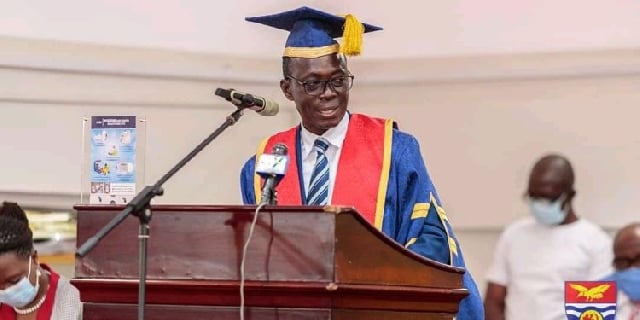Prof. Johnson Nyarko Boampong, the Vice-Chancellor of the University of Cape Coast (UCC), has been reinstated in his position following a recent ruling by the Cape Coast High Court. The court granted a stay of execution on a prior injunction that had prohibited him from performing his official duties due to ongoing legal disputes surrounding his reappointment. This decision permits Prof. Boampong to continue his administrative and academic responsibilities while the judicial process regarding his appointment is further deliberated. The ruling not only reinstates him but also imposes an interlocutory injunction against the UCC Governing Council and its Chairman, effectively barring them from making any decisions or discussions pertaining to his removal until the court arrives at a final judgment.
The tensions leading to these legal battles have roots in a controversy ignited by an alumnus’s legal challenge against Prof. Boampong’s reappointment. The controversy escalated when the Council Chairman made a bid to prematurely terminate Boampong’s reappointment, which had already received the required approval from the Council. Prof. Boampong’s renewed term is set to last from August 1, 2024, to July 31, 2026. However, the abrupt cancellation of his appointment through an official letter dated July 31, 2024, significantly intensified the frictions between him and the UCC Governing Council.
Experts and stakeholders from various sectors, including the University Teachers Association of Ghana (UTAG), have vocally opposed the Chairman’s actions. They characterized the attempt to dismiss Prof. Boampong as “unlawful and unilateral,” highlighting the importance of due process in university governance. UTAG, representing the interests of academic staff, affirmed that the reappointment of Prof. Boampong was conducted in strict accordance with all established statutory procedures of the university. Their collective criticism of the Council Chairman’s actions signifies a broader concern about governance, accountability, and adherence to democratic norms within academic institutions.
The High Court’s decision to remove the injunction placed against Prof. Boampong previously was a monumental development. This earlier order had temporarily barred him from executing his duties as Vice-Chancellor, casting uncertainty over leadership and management at UCC. With the cauldron of legal disputes now simmering but still actively engaging the court’s attention, Prof. Boampong can effectively fulfill his role while benched from threatening removal until the court renders a final judgment.
In response to the ongoing turbulence created by these events, the UCC Governing Council members have expressed their discontent over the unilateral actions taken by the Council’s Chairman. Many have voiced their support for Prof. Boampong, emphasizing the need for governance structures within academic circles to respect established protocols and promote fair play. The evolving scenario calls into question the integrity of the decision-making process within the university, pointing out inadequacies in leadership and strategic vision.
As the court decides the fate of Prof. Boampong’s reappointment, the implications of this ruling extend beyond individual interests—underscoring the significance of rule of law and institutional governance. It serves as a crucial reminder that the essence of educational leadership hinges on respect for procedure, collaboration, and a commitment to uphold the values of academic institutions. The unfolding legal proceedings will not only determine Prof. Boampong’s future but also set important precedents for governance practices in Ghanaian universities, thus broadening the dialogue on institutional reforms and leadership accountability.


